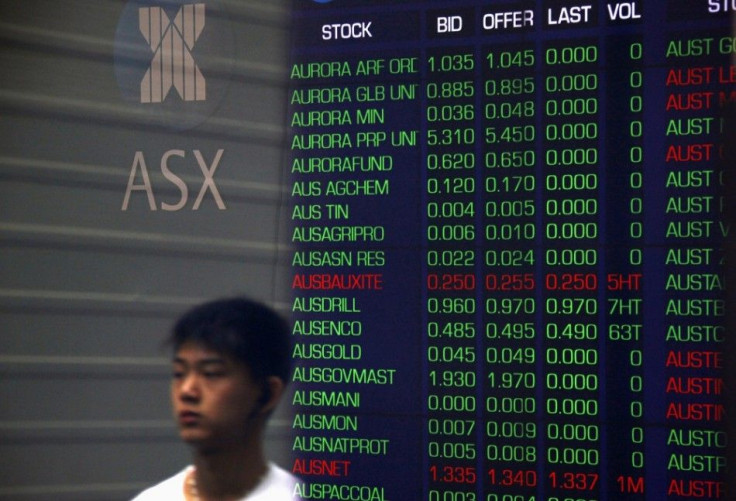Australian Stock Market Report – Midday November 10, 2014

Sellers have applied their weight to the share market on Monday, discriminating little between the various sectors. Mining and energy stocks however have escaped the attention that has seen financials lead the way lower after Westpac (WBC) went ex-dividend, shedding more than 3.5% in the process. The softer tone is a reflection of a similar experience to that of US stocks on Friday after jobs data missed expectations. Figures from The US Bureau of Labour Statistics showed that non-farm payrolls rose by 214k in October (231k expected). Unemployment fell to a 6-year low of 5.8%. Average earnings rose by 0.1%. The labour force participation rate rose from 62.7% to 62.8%.
Investors digested the implications of latest US economic data - concluding that there is no rush for the Federal Reserve in lifting interest rates. The Dow Jones ended trade up by 19.5 points or 0.1%. The S&P 500 index was up by less than 0.1%. The Nasdaq fell by 5.9 points or 0.1%. Over the week the Dow rose by 1.1%, the S&P 500 by 0.7%, while the Nasdaq rose by less than 0.1%.
Mining stocks are the reason the ASX 200 has not fallen further into the red. The sector has attracted some buying off discounted levels after encouraging data from China. China's trade surplus rose to US$45.4bn in October, from US$31 billion. This increase was led by an 11.6% gain in exports over the year, with imports up just 4.6%. Fortescue Metals Group (FMG) was ahead by 2.8% and Rio Tinto (RIO) had gained more than 1%.
Energy stocks are one of the few sectors enjoying some buying support on Monday. World oil prices lifted on Friday, having been sold down to multi year lows over the course of recent months. Brent crude rose by US53c or 0.6% to US$83.39 a barrel. US Nymex crude price rose by US74c or 0.9% to US$78.65 a barrel. However, over the period of last week, Brent fell by US$2.47 or 2.9% and US Nymex crude oil lost US$1.89 or 2.3% - the 6th straight decline and the longest losing streak in 16 years. Oil Search (OSH) shares are down 2% , whilst Woodside (WPL) is down 0.25%.
In economic news domestically, figures showed that home lending fell in September. The Bureau of Statistics reported that number of home loans fell 0.7% to 51,465 compared to expectations that the measure would fall 0.4% in the month. The total value of housing finance rose 2.3 over the month, while the value of investor lending rose 3.7 in August to $11.94bn. The participation of first home buyers recovered from 11.8%in August, the lowest levels on record, to at 12 % in September. The value of investor home loan approvals rose by 3.7 per cent in September to be 25.4 per cent higher over the year.
[Kick off your trading day with our newsletter]
More from IBT Markets:
Follow us on Facebook
Follow us on Twitter





















